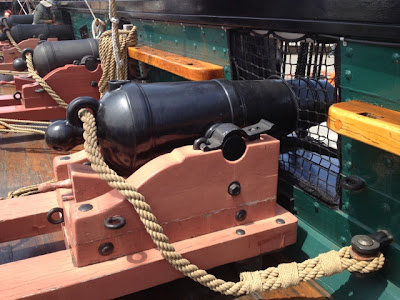The family pulled into the driveway on Friday night and by 8 a.m. on Saturday, I was seated in a chair at the
Wichita State University Education Department for EdCamp. What was I thinking!
Edcamp is the brainchild of teachers in Philly a few years ago. EdCamp challenges teachers to take control of their own professional learning. They shy away from pre-set components--teachers at each event decide at the start of the event what they want to facilitate and what classes they want to attend.
This format lends itself to a sort of chaotic feel to the uninitiated, read that as me! Large Post-it sheets had sessions for each room, but as choices changed, so did the sheets. It was a little chaotic, but there was enough structure to guide us to the first session and then to the next and then to the next. It was nice not to be tied to a specific 'track' or feel like you could change your session selections mid-conference. The word they use is organic and that is a fair description.
EdCampKS had three morning sessions and I learned something in each.
Evernote is an app that I knew very little about but could see me using the snot out of. For an hour the facilitator talked us through its use and we played with the app. There were several other teachers there who were also very knowledgeable and so they were encouraged to jump in. There was a teacher take away there for me--the best teaching occurs when the teacher is secure enough to give the reigns to others. The faciliator maintained control of the group but was genuinely open to others insights about the application.
Google is more than just a verb and this session explored it. One of the things I learned was that by adjusting the search metric, students could find microfiched newspaper from as far back as
WWI. It can also narrow a search based on the pixels and type of an image. We also played with the audio capabilities and the facilitator suggested several uses which were things I hadn't thought of using the audio function for (for instance--instead of guessing how
amistace, arminstase, armistice is spelled, why not just let the google version of
Siri help you out.)
One of the sessions I was really interested in was on blogging. The facilitator is a big proponent of WordPress and I use Blogger. I was curious to see if he would get me to change my mind. He did not. WordPress has some cool bells and whistles, but I think I'll stick with what I know. Besides, if I do want to change my blog over, WordPress will pull my whole Blogger archive over when I move, so its kinda a win-win for me.
After lunch was a session where everyone presented apps they use and wanted to recommend. This session, called a smackdown, was a brilliant concept. Teachers talking to other teachers instead of the IT guy giving a laundry list of what they might suggest. Teachers talked specifically about how they used it and what they liked and didn't like about the app. There are some really knowledgeable teachers and it was cool to hear from people in the classroom.

The final session of the day was called Rocks-Sucks and it was exactly what it sounds like. Topics were given and you chose Rocks or Sucks. A short period of time was allowed for both sides to defend their position. Someone said this is a staple of EdCamps all across the nation. Our topics included: tenure, Common Core, Bring Your Own Device, 1:1 initiative, firewalls, and State Assessments. What was fascinating was that there was a diversity of opinion and insights and you found yourself waivering as your 'opponent' made their case. I have done something like this in class, I need to do it more.
What I walked away from EdCamp KS is that the reality is that teachers need to take faculty meetings, professional development and in-services away from well-meaning administrators. That isn't a slam against them. They are doing what we don't want to do. Today, however, showed that with a little organiation and leadership, teachers can train themselves, thank you very much.





















